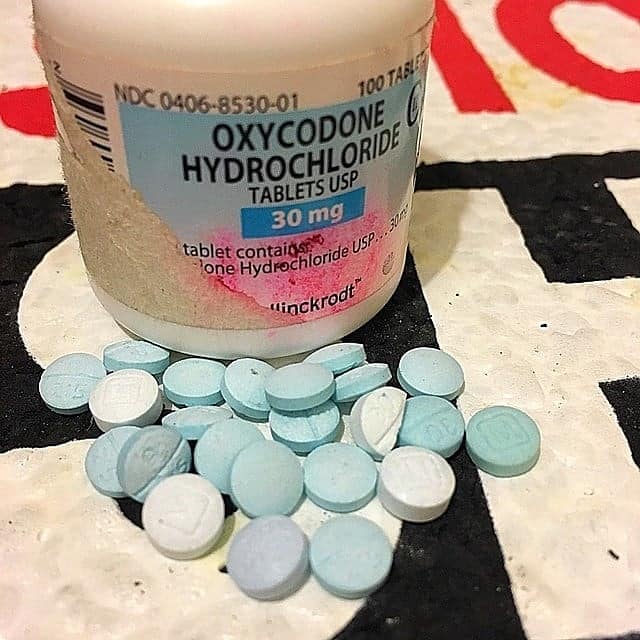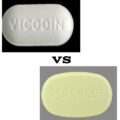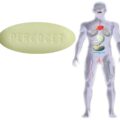Oxycodone, sold under the brand name OxyContin (which is the extended release form) among others, is an opioid medication used for the treatment of moderate to severe pain, and a common drug of abuse. Oxycodone was first made in Germany in 1916 from thebaine. It is available as a generic medication.
In 2018, it was the 48th most commonly prescribed medication in the United States, with more than 16 million prescriptions. It is usually taken by mouth and is available in immediate-release and controlled-release formulations. The onset of pain relief typically begins within fifteen minutes and lasts for up to six hours with the immediate-release formulation.
In the United Kingdom, it is available by injection. Common side effects include euphoria, constipation, nausea, vomiting, loss of appetite, drowsiness, dizziness, itching, dry mouth, and sweating. Severe side effects may include addiction, dependence, hallucinations, respiratory depression (a reduction in breathing), bradycardia, and low blood pressure. Those allergic to codeine may also be allergic to oxycodone. The use of oxycodone in early pregnancy appears relatively safe. Opioid withdrawal may occur if rapidly stopped. Oxycodone acts by activating the μ-opioid receptor. When taken by mouth, it has roughly 1.5 times the effect of the equivalent amount of morphine.
What is Percocet?
Percocet is the brand name for a painkiller that combines oxycodone and acetaminophen. It contains an opioid pain reliever (oxycodone) and a non-opioid pain reliever (acetaminophen). Oxycodone works in the brain to change how your body feels and responds to pain. Acetaminophen can also reduce a fever.
According to Mayo Clinic, Oxycodone and acetaminophen combination is used to relieve pain severe enough to require opioid treatment and when other pain medicines did not work well enough or cannot be tolerated. Acetaminophen is used to relieve pain and reduce fever in patients. It does not become habit-forming when taken for a long time. But acetaminophen may cause other unwanted effects when taken in large doses, including liver damage.
The main difference between Oxycodone and Percocet is the fact that Oxycodone is a derivative of opium and is sold under different brand names, including OxyContin. Percocet on the other hand is a combination of oxycodone and acetaminophen. Oxycodone and Percocet are both classified as narcotic analgesics.
What should I avoid while taking acetaminophen and oxycodone?
Avoid driving or operating machinery until you know how this medicine will affect you. Dizziness or drowsiness can cause falls, accidents, or severe injuries. Do not drink alcohol. Dangerous side effects or death could occur. Ask a doctor or pharmacist before using any other medicine that may contain acetaminophen (sometimes abbreviated as APAP). Taking certain medications together can lead to a fatal overdose.
What are the possible side effects of acetaminophen and oxycodone?
Get emergency medical help if you have signs of an allergic reaction: hives; difficulty breathing; swelling of your face, lips, tongue, or throat.
Opioid medicine can slow or stop your breathing, and death may occur. A person caring for you should seek emergency medical attention if you have slow breathing with long pauses, blue colored lips, or if you are hard to wake up.
In rare cases, acetaminophen may cause a severe skin reaction that can be fatal. This could occur even if you have taken acetaminophen in the past and had no reaction. Stop taking this medicine and call your doctor right away if you have skin redness or a rash that spreads and causes blistering and peeling.
Call your doctor at once if you have:
- noisy breathing, sighing, shallow breathing, breathing that stops during sleep;
- a light-headed feeling, like you, might pass out;
- weakness, tiredness, fever, unusual bruising, or bleeding;
- confusion, unusual thoughts or behavior;
- problems with urination;
- liver problems –nausea, upper stomach pain, tiredness, loss of appetite, dark urine, clay-colored stools, jaundice (yellowing of the skin or eyes); or
- low cortisol levels — nausea, vomiting, loss of appetite, dizziness, worsening tiredness or weakness.
Seek medical attention right away if you have symptoms of serotonin syndrome, such as agitation, hallucinations, fever, sweating, shivering, fast heart rate, muscle stiffness, twitching, loss of coordination, nausea, vomiting, or diarrhea.
Serious side effects may be more likely in older adults and those who are overweight, malnourished, or debilitated.
Long-term use of opioid medication may affect fertility (ability to have children) in men or women. It is not known whether opioid effects on fertility are permanent.
Common side effects include:
- dizziness, drowsiness, feeling tired;
- feelings of extreme happiness or sadness;
- nausea, vomiting, stomach pain;
- constipation; or
This is not a complete list of side effects and others may occur. Call your doctor for medical advice about side effects.
What other drugs will affect acetaminophen and oxycodone?
You may have breathing problems or withdrawal symptoms if you start or stop taking certain other medicines. Tell your doctor if you also use an antibiotic, antifungal medication, heart or blood pressure medication, seizure medication, or medicine to treat HIV or hepatitis C.
Opioid medication can interact with many other drugs and cause dangerous side effects or death. Be sure your doctor knows if you also use:
cold or allergy medicines, bronchodilator asthma/COPD medication, or a diuretic (“water pill”);
medicines for motion sickness, irritable bowel syndrome, or overactive bladder;
other narcotic medications –opioid pain medicine or prescription cough medicine;
a sedative like Valium –diazepam, alprazolam, lorazepam, Xanax, Klonopin, Versed, and others;
drugs that make you sleepy or slow your breathing –a sleeping pill, muscle relaxer, medicine to treat mood disorders or mental illness;
drugs that affect serotonin levels in your body –a stimulant, or medicine for depression, Parkinson’s disease, migraine headaches, serious infections, or nausea and vomiting.
This list is not complete. Other drugs may affect acetaminophen and oxycodone, including prescription and over-the-counter medicines, vitamins, and herbal products. Not all possible interactions are listed here.
Where can I get more information?
Your doctor or pharmacist can provide more information about acetaminophen and oxycodone. SEE: Percocet 30 mg: Facts, Side Effects, Addiction, How to Spot Fakes






